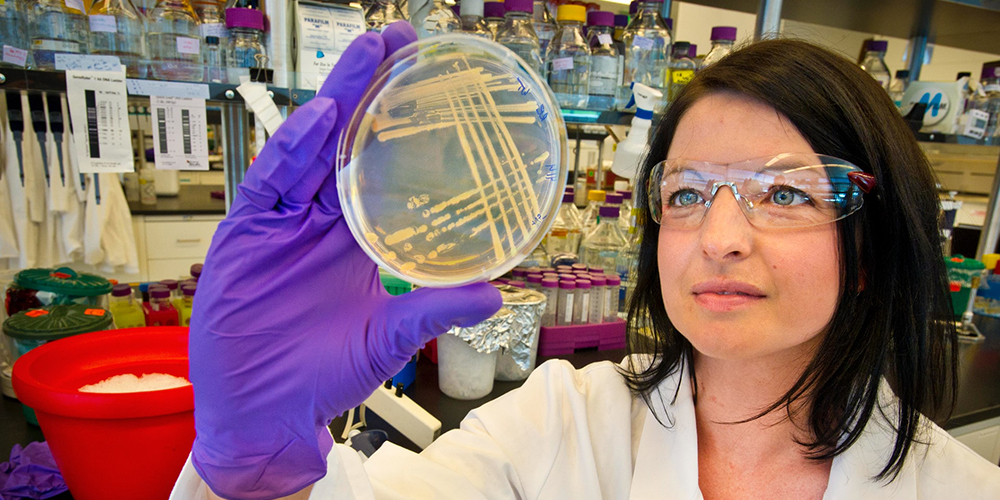
At a time when scientific research is of paramount importance to human and environmental well-being, the ISC is gravely concerned by reports of threats to scientific freedom from around the world. Scientists have a key role to play in overcoming the COVID-19 pandemic, and in addressing the range of major social and environmental challenges such as those set out in the Sustainable Development Goals. Progress in these and other areas depends on free and responsible scientific collaboration and research.
The right to share in and to benefit from advances in science and technology is enshrined in the Universal Declaration of Human Rights, as is the right to engage in scientific enquiry, pursue and communicate knowledge, and to associate freely in such activities. The ISC seeks to uphold four fundamental scientific freedoms:
These rights go hand in hand with responsibilities: in the responsible practice of science and the responsibility of scientists to contribute their knowledge in the public space. Both are essential to the ISC’s vision of science as a global public good.
Scientific freedoms are threatened by attacks on the values of science, and through individual cases of discrimination, harassment or restriction of movement of scientists. Reports from various countries suggest that threats to scientific freedom are on the increase, with serious implications for the global scientific community, as well as individual scientists and their families.
Scientific freedom is inextricably linked to core values of higher education and scholarship, including institutional autonomy. Accordingly, the ISC is concerned by a number of cases of political interference with academic leadership. These include recent events at Boğaziçi University in Turkey, at the University of the South Pacific, in Hungary, and in Belarus. These actions suggest a disregard for the responsibility of states and governments to protect academic freedom as advocated by the UN’s Special Rapporteur on the promotion and protection of the right to freedom of opinion and expression, as well as by regional initiatives such as the Bologna Process and the Bonn Declaration on Freedom of Scientific Research.
Beyond these threats to individual higher education institutions, political interference with national scientific governance also poses a serious challenge to efforts to protect scientific freedom. In 2020, the ISC lent strong support to its member the Science Council of Japan in efforts to maintain scientific freedom of choice in selecting which scholars to appoint to its General Assembly. As the global voice of science, we remain alert to threats to the autonomy of scientific organizations, which can curtail significantly the freedom of scientists to determine rigorous research agendas.
Further to these issues, we are concerned by reports that scientific enquiry and teaching are under increasing pressure to align with political agendas. Draft legislation in Morocco may grant the government powers to amend academic curricula and intervene in research. In France, social scientists are facing undue scrutiny for their work on colonialism and race, while in Hong Kong, universities have been directed to alter their curricula in line with the recently introduced National Security Law.
For science to progress efficiently and for its benefits to be shared equitably, scientists must have intellectual freedom. This includes individual freedom of enquiry and exchange of ideas, freedom to reach scientifically defensible conclusions, and institutional freedom to apply collectively scientific standards of validity, replicability and accuracy. Efforts to restrict or discourage certain areas of research and teaching represent a serious infringement of scientific freedom.
The rigorous practice of science is essential to addressing the global challenges currently facing society. For progress to be equitable and effective, scientists must have the right to scientific freedom, with due respect and protection from all states and governments around the world.
The members of the Committee for Freedom and Responsibility in Science: are Daya Reddy (Chair), Saths Cooper (Vice Chair), Richard Bedford, Craig Callender, Enrique Forero, Robin Grimes, Cheryl Praeger, Sawako Shirahase, Peter Strohschneider, Hans Thybo and Nadia Zakhary.
Read more on the ISC’s commitment to protect scientific freedoms enshrined in the Declaration of Human Rights and our work in advocate for these responsibilities. The Principle of Freedom and Responsibility in Science is enshrined in ISC Statute 7.

UNESCO Recommendation on Science and Scientific Researchers